If you aim to find out if hydroponic gardens work, then you have come to the right place.
From the term itself, hydro means water, and ponos means labor. Tying the two terms together, hydroponics then becomes the act of growing plants in water.
In lieu of soil, a nutrient-rich water solution is used in hydroponic systems.
Just like any other system, hydroponic gardens specifically those set up outdoors, come with more than just one setback.
They are great though for people with limited space and resources. This is because nature will provide you with most of the things that you will need such as adequate sunlight and natural humidity.
- Related Article: What Are Hydroponics Systems?
Can Hydroponics Be Grown Outside?
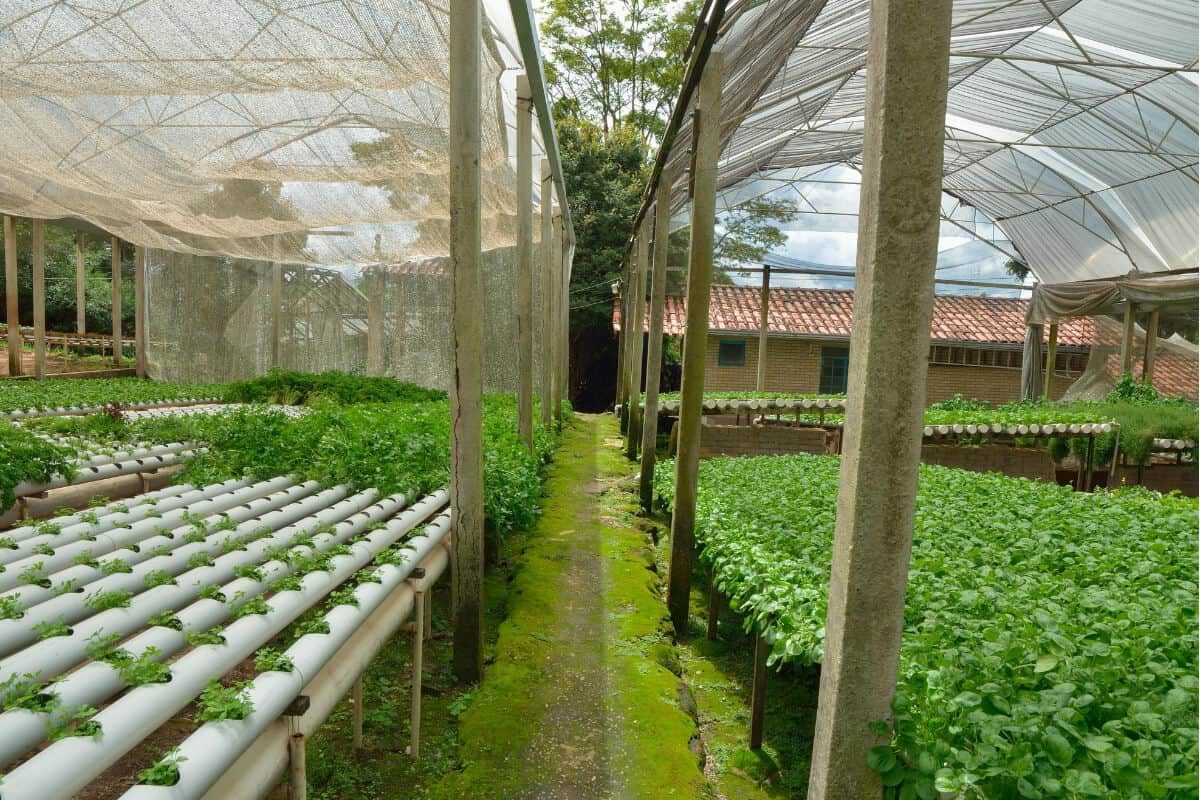
A lack of physical space or funds might be a common reason why people choose to set up an outdoor hydroponic garden instead of an indoor one.
The latter is a great alternative even though there might be more challenges to it as compared to the indoor types because natural factors are ever present and less controllable.
But yes, it is very possible to set up an outdoor hydroponic garden.
Best Plants to Grow in an Outdoor Hydroponic Garden
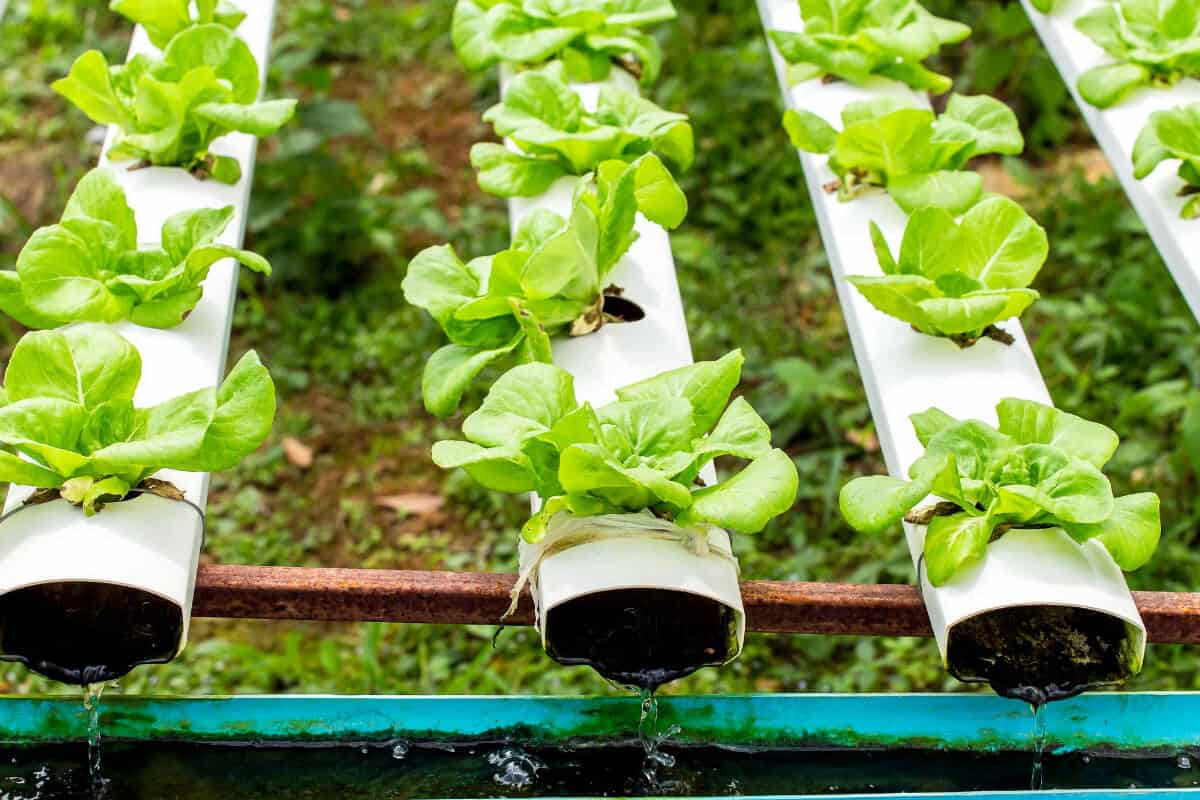
There are different systems that hydroponics can employ to grow just about any crop you can imagine. However, plants that are compact with smaller rooting systems are preferred over other types.
We saved you time and listed some plants that are best suited for outdoor hydroponics below:
- Lettuce – grows quickly in nutrient-rich water. It also does not require a lot of space to grow. You can harvest lettuce over a month.
- Basil – this popular herb for cooking can thrive in an outdoor setting as it prefers warmer temperatures and needs sunlight for optimal growth.
- Tomatoes – tomatoes love the sun as much as basil does so an outdoor hydroponic is ideal. These little growers prefer a slightly acidic environment with good humidity.
- Spinach – this vegetable is ideal for hydroponic gardens because it requires little maintenance and grows fast. This tough plant can grow through fluctuations in temperature and light with little to no struggle.
- Cucumber – cucumbers are lovers of warm, sunny climates and are a great fit for outdoor hydroponic gardens.
- Bell peppers – this crop has a long growing season and does well in warm temperatures, making the outdoors an ideal place for it to grow.
- Beans – beans have a high yield and require low maintenance. It also has several nutritional benefits. Growing them also requires minimal space.
- Daffodils – these bright blooms can be grown in both soil or water making them a good choice for hydroponic systems
- Chives – chives are hardy plants. They can withstand several fluctuations in temperature and light making them suitable for outdoor hydroponic systems. They also love a lot of light and moisture.
Read more about Hydroponic Plants at Home.
What Hydroponic System Works Best Outdoors
Hydroponics as an agricultural method has developed and expanded over the century to grow different varieties of plants.
Every hydroponic system is based on the same principle but some are better suited for growing outdoors than others.
Which hydroponic system works best? That will depend on the kind of crop or plant you plan on growing. Make sure to also take climate, space, and surrounding wildlife into mind.
The most popular outdoor hydroponic systems used are:
- Ebb and Flow Hydroponics
- Top Feed Drip
- Aeroponics Gardening
Ebb and Flow
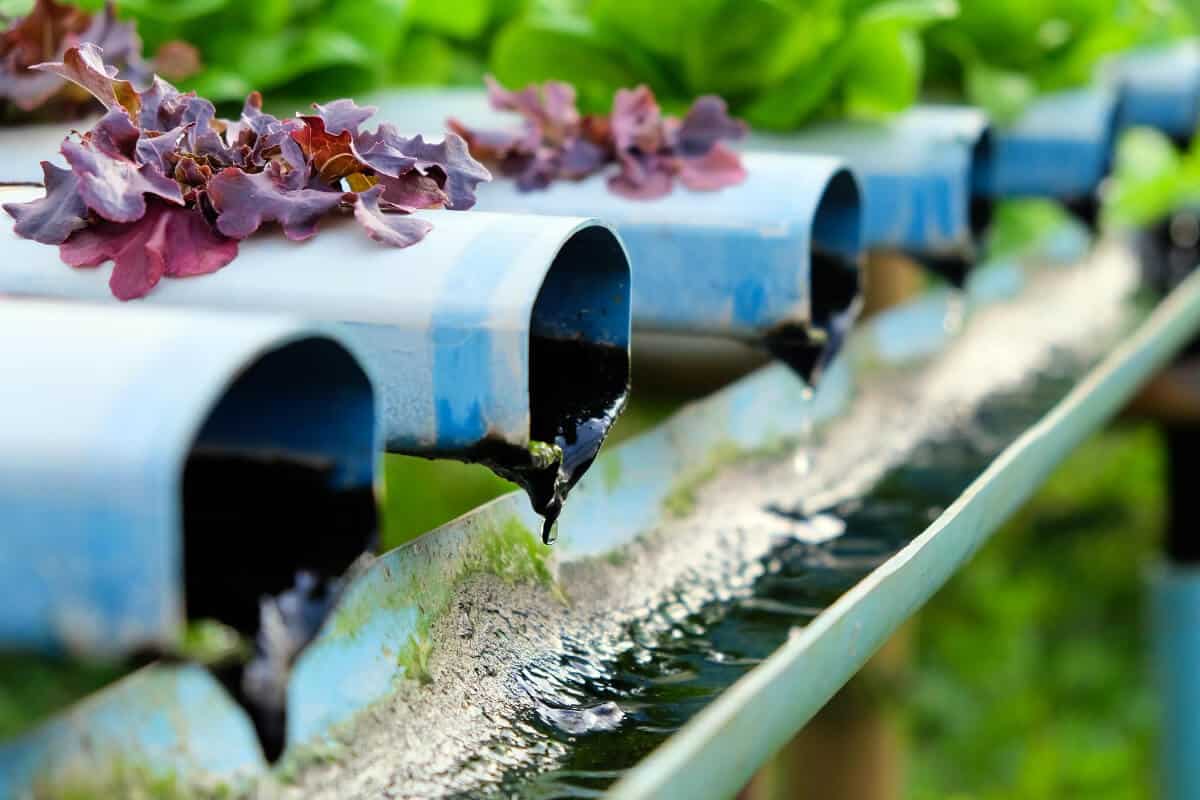
The Ebb and Flow system periodically floods the roots of your plants with a nutrient solution, and then drains the water from the channels, into a water reservoir below. The process is repeated throughout the day and works with a timing system.
Top Feed Drip
The Top Feed Drip hydroponic system uses a water pump to continually feed your plants, with a nutrient water solution. This system uses individual pot plants, emitters, and a feeder line that is connected to a water reservoir.
Each plant has its own dedicated emitter, that supplies the plant with oxygenated and nutrient-rich water.
Aeroponics
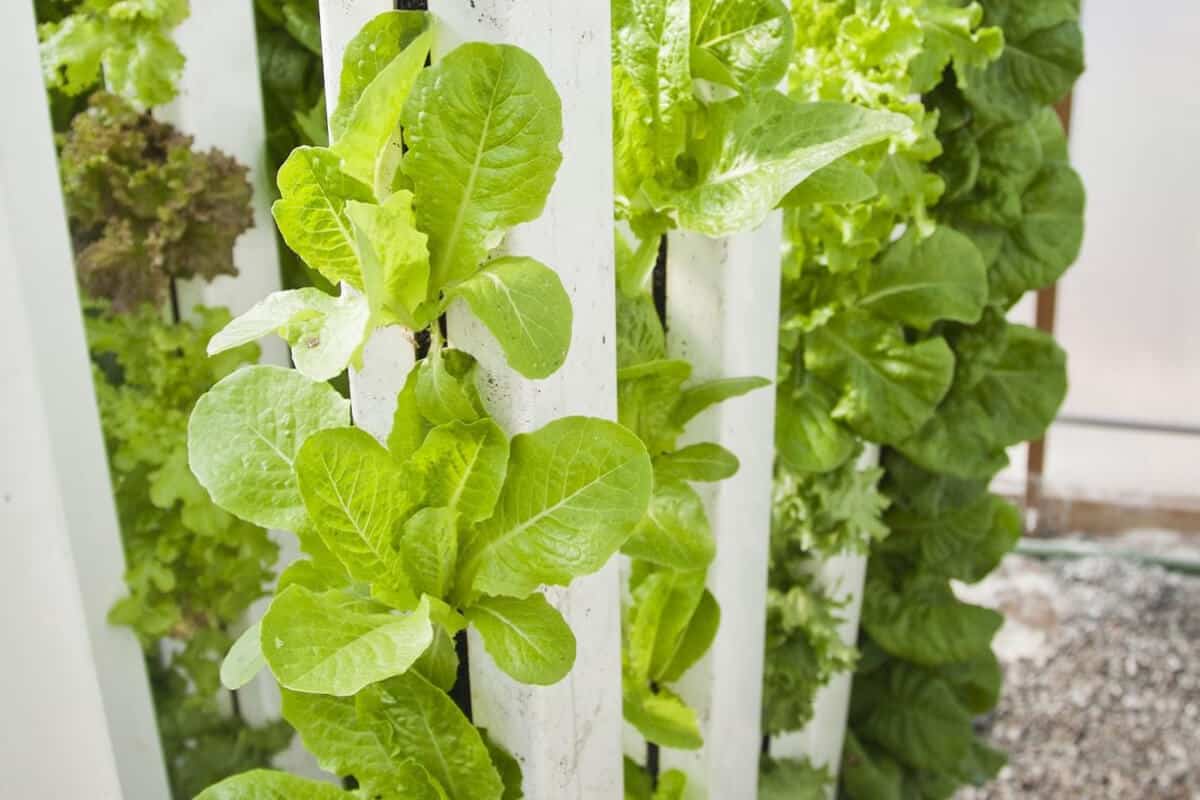
The Aeroponic systems suspend the plant’s rooting system above an irrigation system.
The irrigation system then pumps nutrient-rich water from a water reservoir, and with the help of sprinklers, it sprays the suspended plant roots with the nutrient water solution.
The suspended roots, are not submerged in a nutrient-rich solution but are rather irrigated, with a nutrient-rich mist, from below.
Does Rain Affect Outdoor Hydroponics?
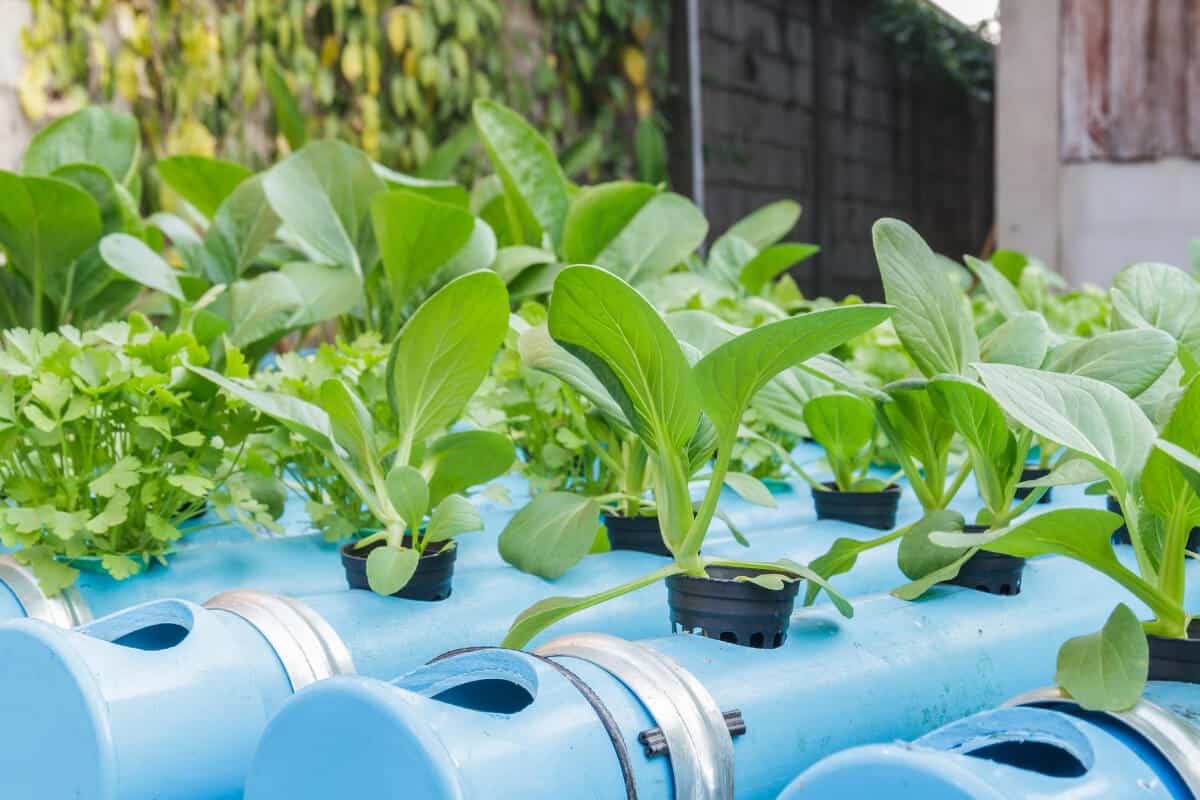
Often, gardeners enjoy rainwater because it can seamlessly break down nitrogen to nitrate. Nitrates are easily absorbed by plants from the soil so that is less work for them. It also speeds up plant growth.
A hydroponic garden does not get as much benefit from it, however. In fact, rainwater alters the pH balance of your water, as well as the EC and nutrient levels in it.
Rain can be catastrophic for your plants and depending on the amount, and severity of the rainfall, it can lead to flooded hydroponic systems, and will often damage seedlings.
Learn more about the Proper pH for Hydroponics.
7 Tips for The Best Outdoor Hydroponic Yields
Outdoor hydroponics can seem quite challenging for beginner growers, so we’ve compiled a list of the 7 best tips, to help ensure that your outdoor hydroponic garden yields the best results.
1. Keep the Water Temperature Cool
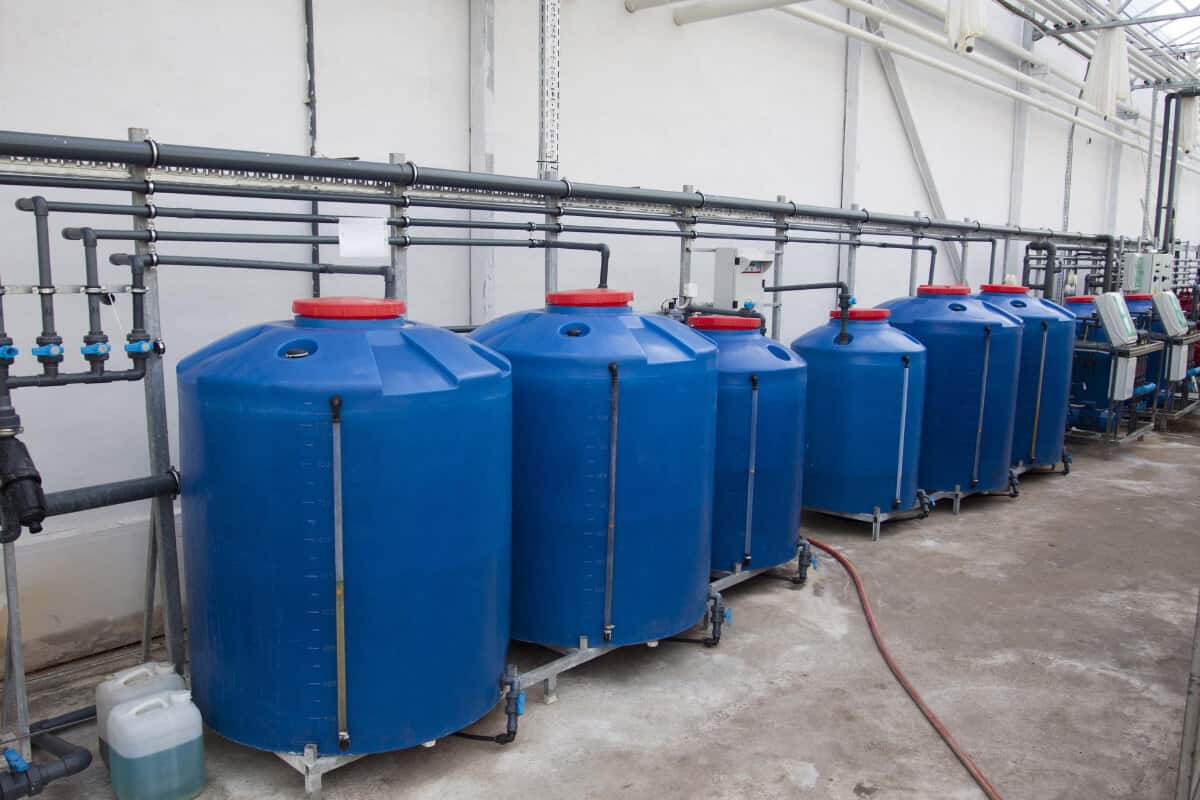
Keeping the water cool in your hydroponic reservoir can be challenging during the summer months. The sun will cause the water level in your hydroponic system to evaporate faster and require a constant top-up.
To ensure that your water remains cool, keep your water reservoir away from any direct sunlight.
Placing frozen water bottles in your reservoir will keep your water temperature cooler, in the hotter summer months. You can also consider purchasing a water chiller.
2. Free Lighting From the Sun
Indoor hydroponics demands an extensive power supply for lighting, that is provided for free by the sun. The rays from the sun provide a better lighting source than artificial lighting. Summer sunlight can provide your plants with over 12 hours of constant natural sunlight.
3. Provide Shade
The heat from the sun’s powerful rays can damage your plants and ruin your harvests. It is important to provide temporary relief for your plant, from the constant heat.
Using shade cloth or growing in an area that has some cover will provide your plants with some shade.
Remember to do some research on the type of plants you intend on growing as different plants have varied shade needs as well.
4. Keep the Pests Far Away
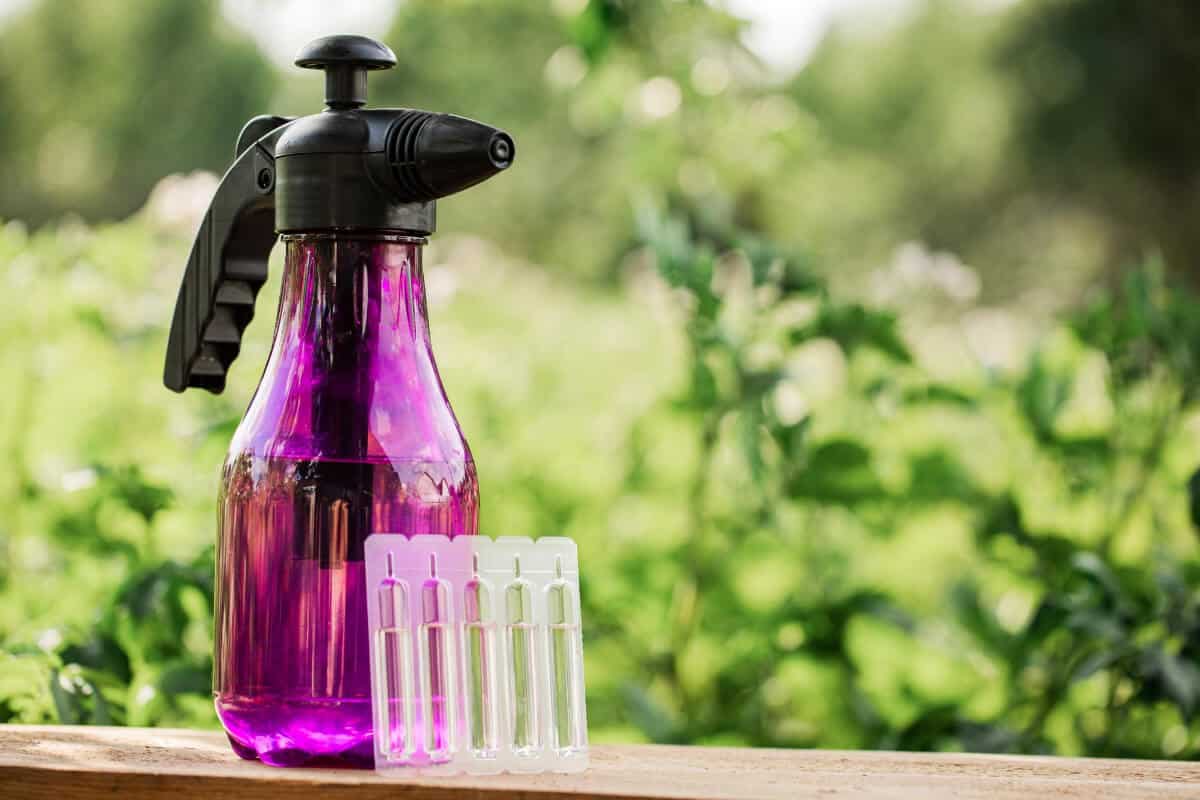
Outdoor hydroponic gardens are exposed, to all flying and crawling critters. Keep the pests at bay, by using pesticides, organic pesticides, and insecticidal soaps. These sprays should keep most pests far away from your crops.
Introducing biological pesticides to your hydroponic plants is a safer and more natural way of preventing and eradicating pests.
A biological pesticide is an insect, such as Ladybug, that naturally preys on pests, and will keep your plants safe.
Preventing pests can also be achieved by keeping your plants healthy, and giving them the right nutrient solution in their water. Trimming all the excessive leaves, and removing any dead plant matter, will prevent pests from occurring in your garden.
5. Control the Wind
One of the added advantages of an outdoor hydroponic garden is the constant supply of carbon dioxide, available for your plants.
Too much wind will have an adverse effect on your plants. Plants that are exposed to constant high-pressure winds are susceptible to windburn.
Your plants will need a gentle breeze of wind to provide some relief from the sun’s heat. Building a windbreaker in your garden will protect your hydroponic garden from excessive wind speeds.
Placing your hydroponic system behind a wall, or trees will provide your outdoor hydroponic garden with some resistance.
6. Lower the Electrical Conductivity
Make sure to adjust the electrical conductivity of the nutrient solution added to your water during the hot summer months.
It’s easier for plants to absorb water when the EC levels in your nutrient solution are lower. Check the EC levels of your water regularly, with an EC tester, before you add any hydroponic nutrients to your water reservoir.
7. Improve Your Plants’ Tolerance to Heat
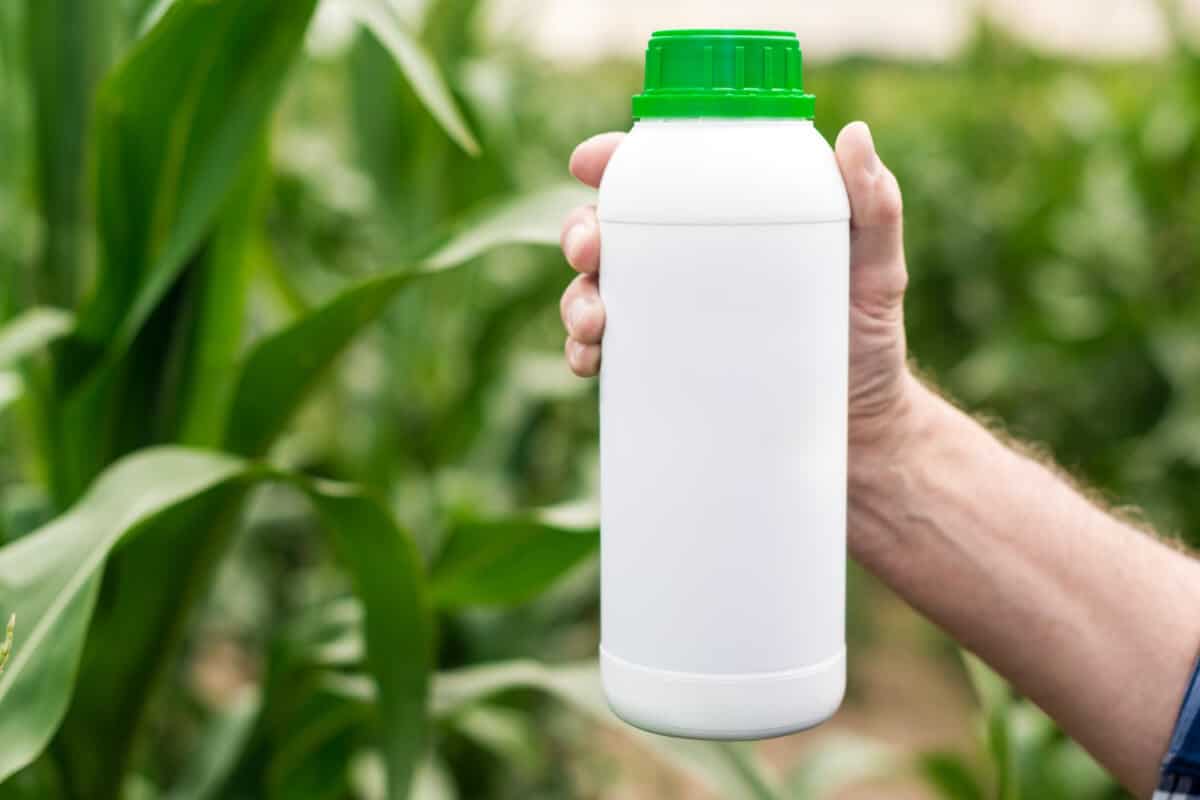
Preparing your plants for the scorching summer heat can be done by simply adding some liquid kelp and humic acid to your nutrient solution. It’s recommended to use a ratio of 5 parts liquid kelp to 2 parts humic acid.
- Related article: Hydroponics Tips and Tricks
Benefits of Outdoor Hydroponic Gardens
The outdoor elements may be challenging to grow plants in, but there are some advantages to using a hydroponic outdoor garden.
1. Free Lighting
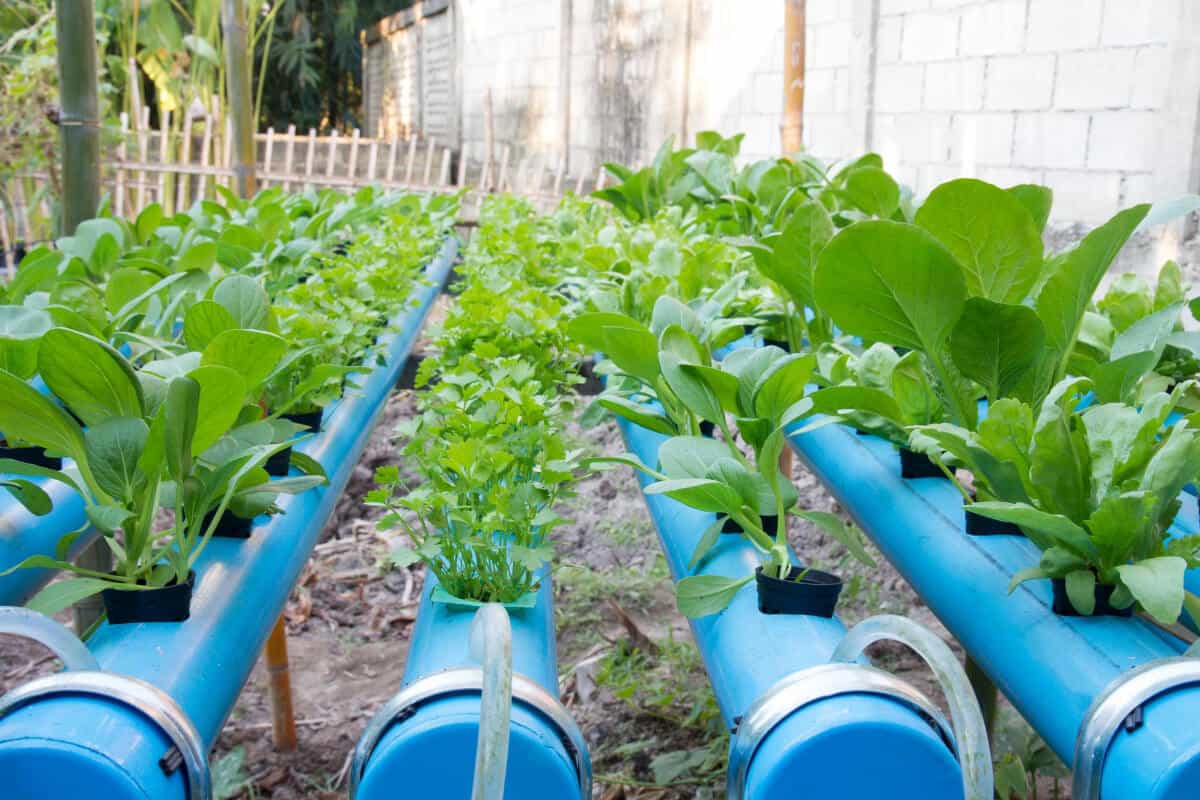
Nature provides what technology has to replicate, in an indoor garden. Growing outdoors for starters doesn’t require artificial light. The sun provides free lighting that is natural and has the correct lighting spectrum.
2. Manual Pollination
The outdoors is filled with pollinators of all kinds and sizes so nature can work to take care of itself just as it is designed to do. This natural benefit from the ecosystem saves you much time and effort.
This way, you can focus more on other concerns that can help in the improvement of your hydroponic garden.
3. Lower Electric Bill
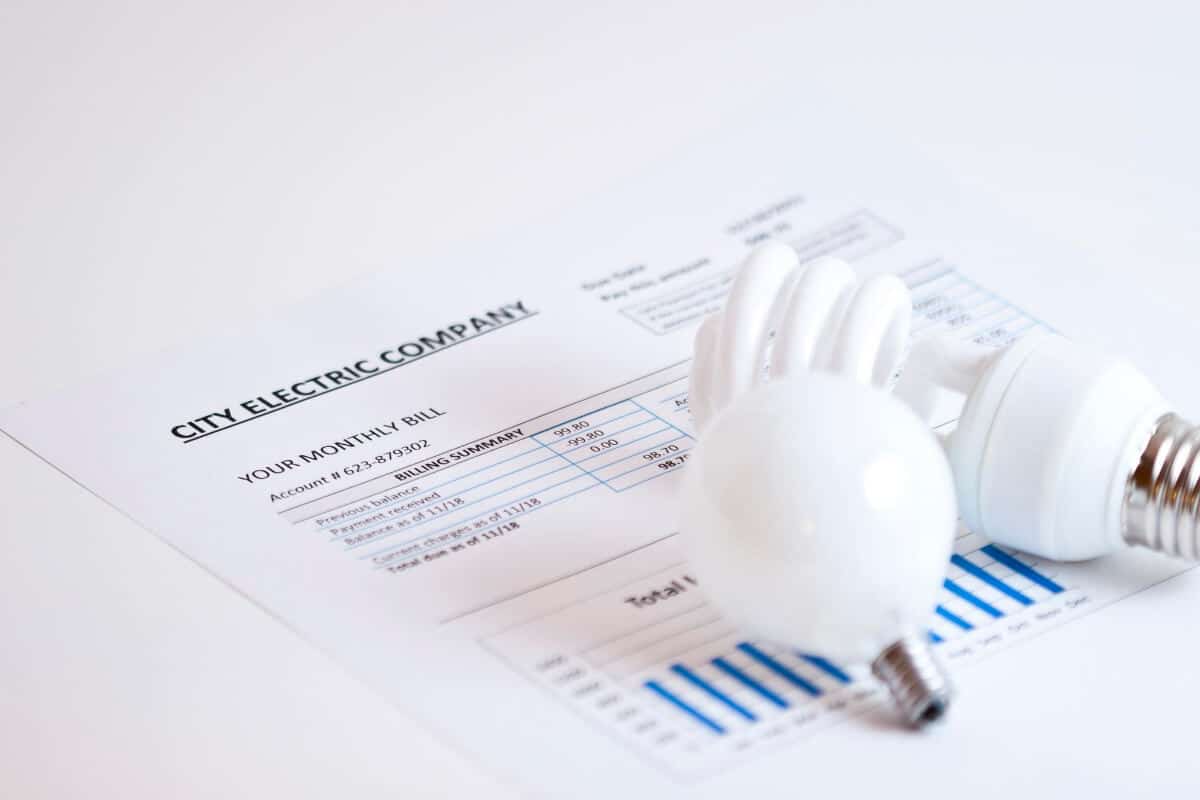
When there’s no need for artificial lights, fans, or heaters, you can expect a lower power bill per month. The benefit of growing outdoors is that there isn’t as much reliance on equipment so that you will be saving money, with a lower electric bill.
4. More Space
Contrary to how indoor gardens are confined to space, outdoor ones have no limit. Outdoors, your plants are free to grow as high and as wide as you please.
5. Less Water is Required
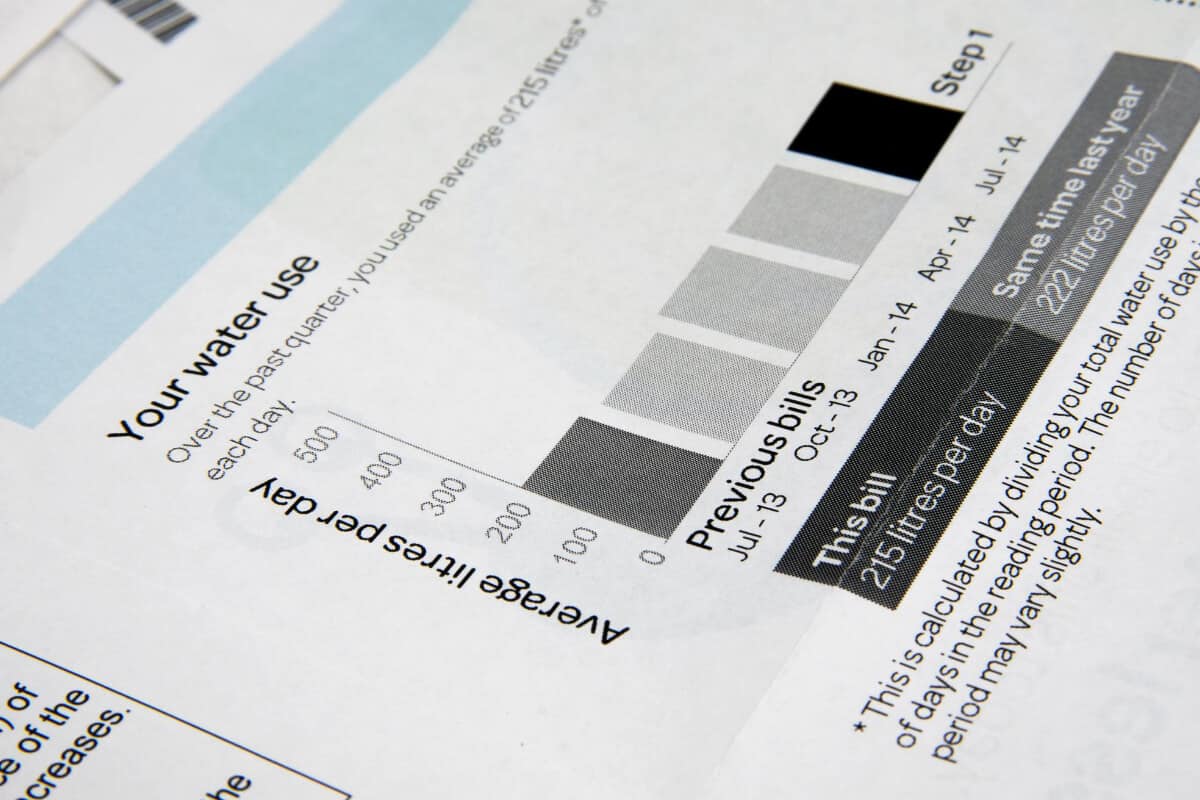
An outdoor hydroponics system will save you water, compared to the traditional soil garden. It’s estimated to use about 10% of the water of a traditional garden, so if you’re living in a dry area, it’s the perfect solution for gardening.
6. Grows Faster and Tastier Fruits and Vegetables
Absorbing nutrients and food through root systems is an effective and fast way to direct the growth and health of plants and crops.
Usually, an evident difference in the size of fruits and vegetables grown in outdoor hydroponic gardens is observable. They will appear to be much bigger and will grow three times quicker.
Drawbacks of Outdoor Hydroponic Gardens
A hydroponic garden has its pros and then there are some cons. We’ve listed some of the drawbacks that outdoor hydroponic gardens face below:
1. Limited Control of Your Growing Environment
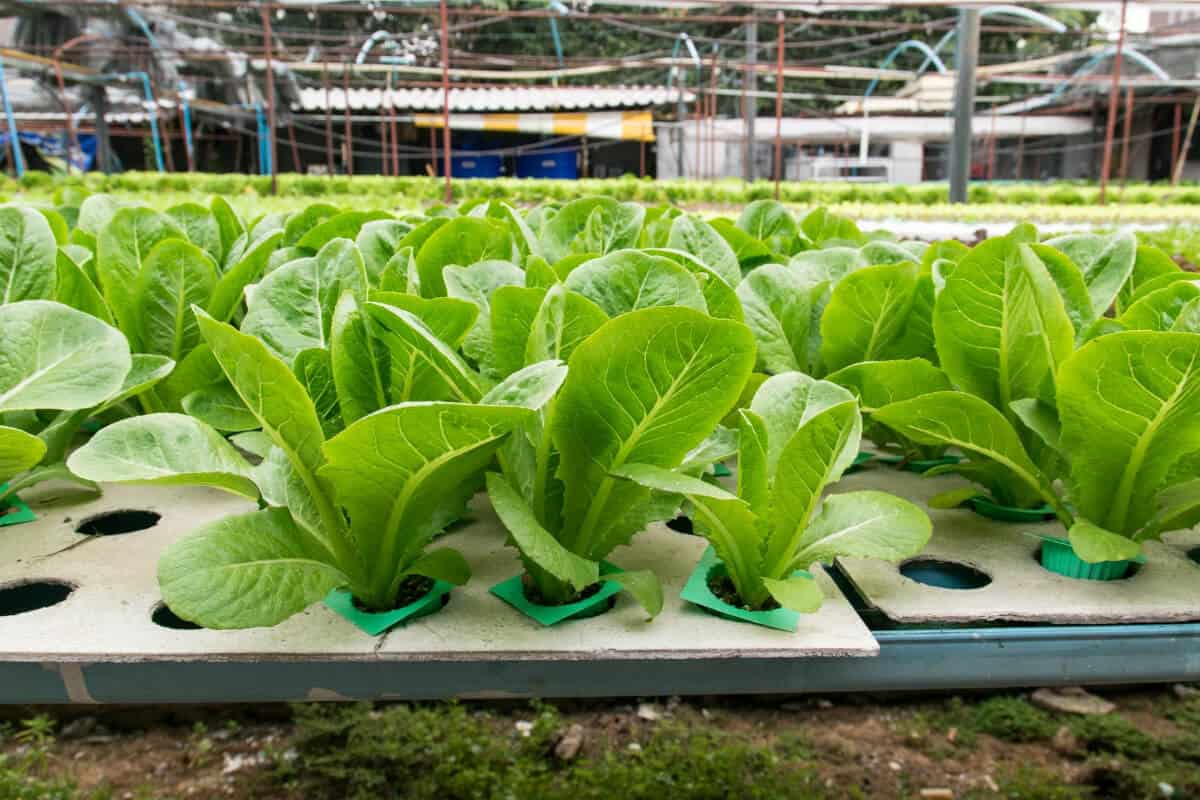
Unlike working with an indoor garden, the outdoors poses many challenges that are most of the time out of our complete control such as rain, fluctuating humidity levels, strong winds, and very high or low temperatures.
These natural factors are easily managed in a controlled environment but may be quite a nuisance for outdoor systems.
For example, high humidity levels lead to bacteria and fungi growing on the roots and leaves of your plants.
The winter poses another problem, its inhospitable environment for plant growth, restricts outdoor hydroponics, to grow in the summer months.
The cold and frost of the winter will kill your plants and provide depleted hours of sunlight.
2. Equipment is Exposed to the Elements
Hydroponic gardening requires a substantial amount of equipment, whether it’s indoors or outdoors, there is still a hefty amount of equipment that is needed. The lifespan of that equipment will greatly diminish when it’s exposed to the outdoors.
The endless exposure to natural factors such as the wind, rain, and heat, takes its toll on the wear of your equipment.
3. More Pests
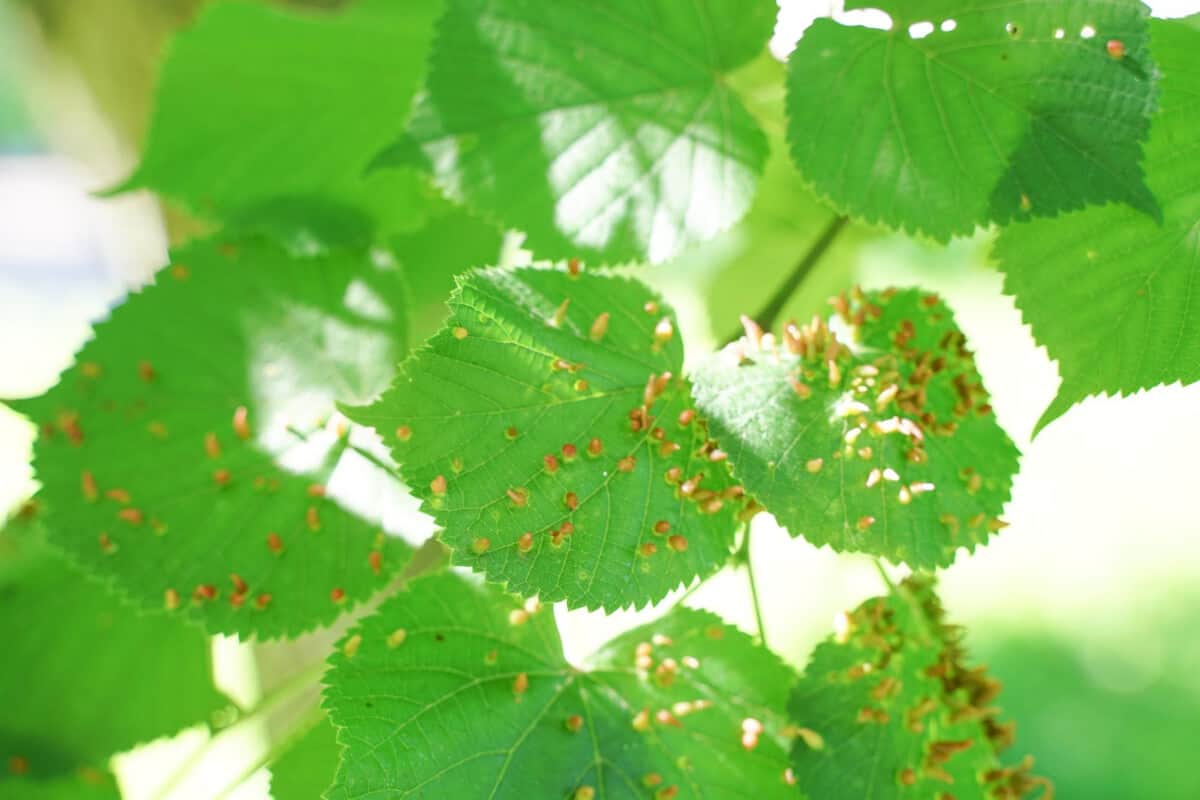
The inevitable problem with outdoor space is the pest factor. With full exposure to any flying or crawling creature, your plants are prone to attacks from pests.
Indoor systems are less prone to attacks from crawling insects and provide better protection.
4. Waterborne Diseases
Soil and water as growing mediums for plants both have their advantages and disadvantages. Just because we are not using soil in hydroponic gardening doesn’t mean that our plants can grow worry-free already.
Waterborne diseases are lethal to plants and once they hit, you have lesser time to react. This also means that your plants can take longer to heal and in severe cases, it can result to crop loss.
5. Maintenance and Monitoring Your Nutrients Levels
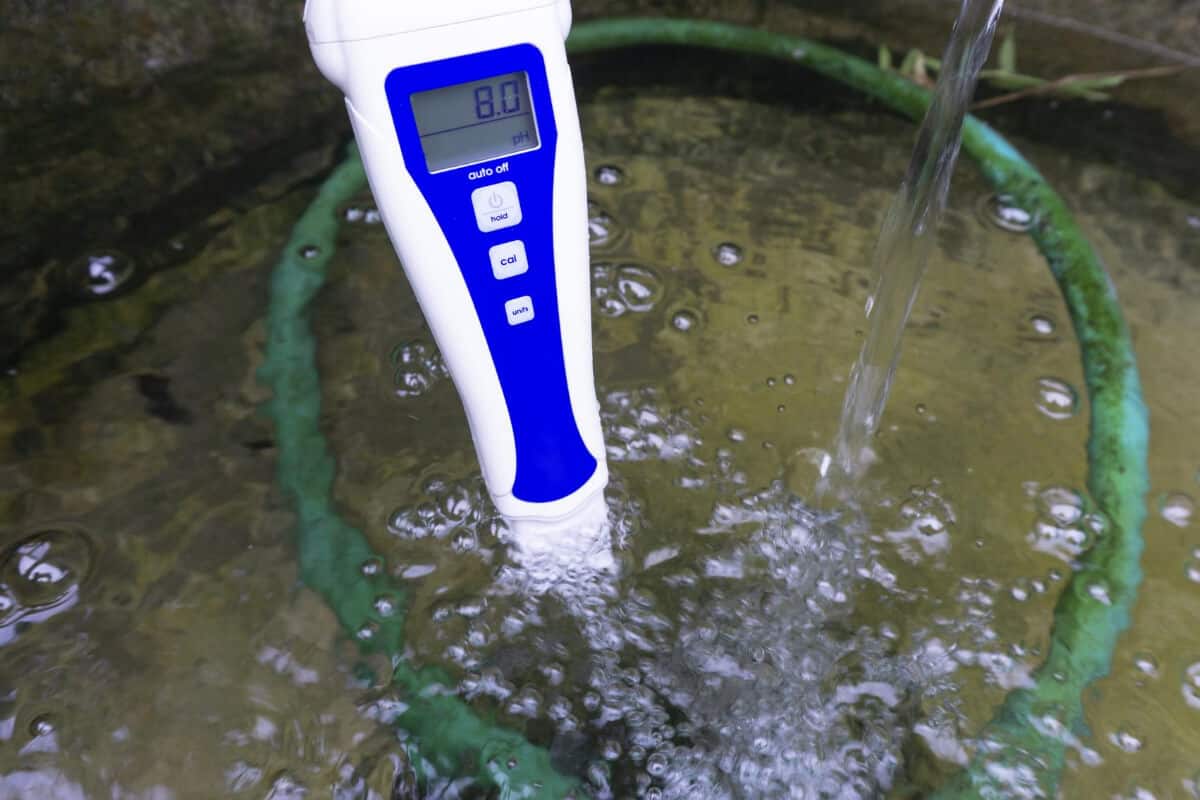
To have a successful hydroponic garden requires extensive effort and knowledge of your plant’s hydroponics nutrition needs.
Maintaining the correct pH levels in your water and administering the correct EC levels in your nutrient solution is time-consuming.
Your hydroponic equipment may let you down from time to time, and keeping a well-maintained system is essential for plant productivity. Algae growth and outdoor hydroponics are never far apart.
Final Thoughts on Outdoor Hydroponic Gardens
If you have limitations on space and resources but want to start setting up your hydroponic garden right away, you can opt to go for an outdoor hydroponic garden instead.
Outdoor hydroponic gardens are effective in growing plants that are small and with great rooting systems. They also save you time and effort because crops grown through this system produce high yields.
These advantages also come with some drawbacks as well and having enumerated some above, you can say that you are better prepared for when these setbacks might come.
If you want to get more insight about hydroponic gardens, check out these amazing articles:

